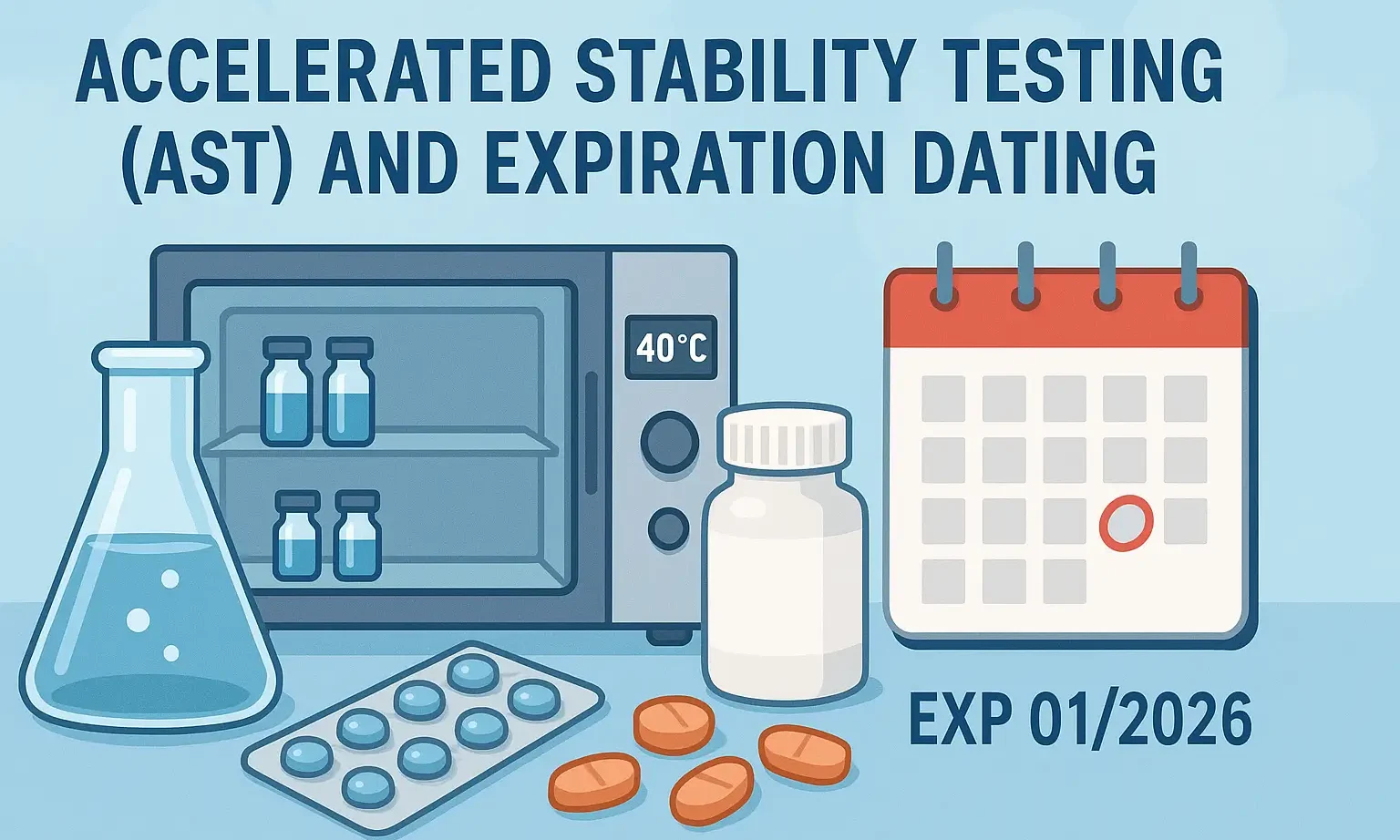Purpose:
- Accelerated Stability Testing (AST) and Expiration Datingis used to predict the shelf life (expiration date) of a pharmaceutical product by subjecting it to elevated stress conditions (temperature, humidity, light) to speed up degradation reactions.
Why It’s Important:
- Ensures drug efficacy, safety, and quality over time.
- Helps set expiration dates and storage recommendations.
- Aids in regulatory approval and quality assurance.
Advertisements
Principle:
- Based on the Arrhenius Equation:
- Where:
- $\text{Rate} = k + k_{AH}[AH] + k_{A^-}[A^-]$
- k = rate constant
- A = frequency factor
- Ea = activation energy
- R = gas constant
- T = temperature in Kelvin
- An increase in temperature increases the rate of degradation, allowing us to extrapolate how the product will behave under normal storage conditions.
Common Conditions in AST (per ICH guidelines):
| Dosage Form | Temp (°C) | RH (
| Duration |
|
| General (Zone II) | 40 | 75 | 6 months |
| Refrigerated products | 25 | 60 | 6 months |
| Freeze-stored products | 5 | NA | 6 months |
Zone-specific conditions apply depending on climate zones.
Advertisements
Applications:
- Estimating shelf life
- Identifying degradation pathways
- Supporting formulation and packaging choices
- Regulatory submissions (e.g., FDA, EMA)
Limitations:
- Extrapolation assumes same degradation mechanism at higher temperatures.
- May not reveal long-term physical changes (e.g., phase separation, aggregation).
- Some degradation may not occur under stress but does at ambient conditions.
Advertisements

